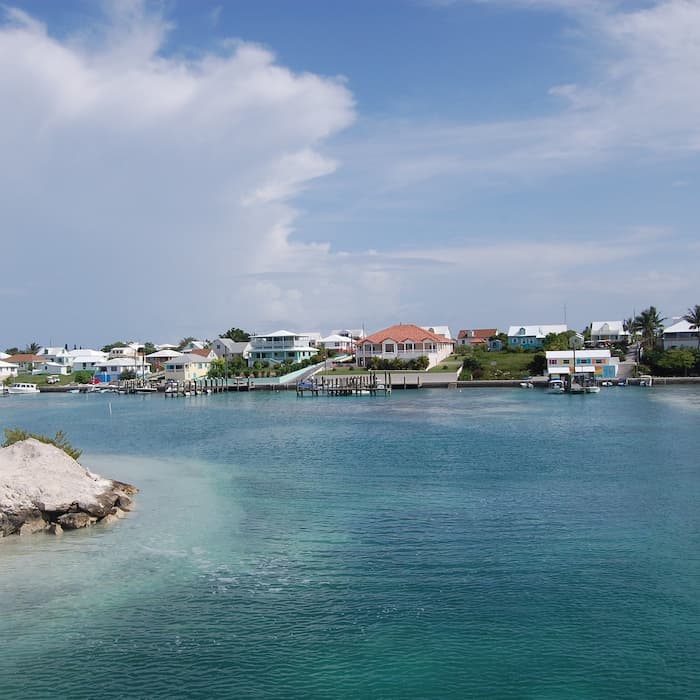Offshore
Court Ruling Enhances Bahamas' Trusts, Arbitration Standing – Taylor Wessing

A father-and-son court battle over billions of dollars of assets held in trusts led to a ruling that boosts the reputation of the Caribbean jurisdiction, a law firm argues.
The result of a court case pitting Italian billionaire
Gabriele Volpi against his son Matteo Volpi over a trust has
protected and enhanced the Bahamas’ status as a
jurisdiction, law firm Taylor Wessing
says.
The firm recently acted for Matteo Volpi in a case which stemmed
from a breakdown of family relations in 2016. Gabriele Volpi
directed Delanson, a trust company, to transfer assets worth
billions of dollars, including Italian football clubs, to
Gabriele Volpi personally, Taylor Wessing said in its account of
the case. Matteo brought proceedings against his father on behalf
of the beneficial class, of which he is one beneficiary, to
recover the assets and reconstitute the trusts. Matteo won in
2018 but his father and Delanson appealed that decision before
the Bahamian Supreme Court.
After 28 months of proceedings, the judge handed down the
judgment and dismissed Gabriele and Delanson's argument in its
entirety.
"This appeal has huge ramifications in future trust arbitrations
that extend beyond the Bahamas. The judgement decides how the
Bahamas Arbitration Act is interpreted and clarifies the position
on the types of challenges that can be made to arbitration awards
before the court,” Taylor Wessing told WealthBriefing.
“It also protected and strengthened the Bahamas' position as a
forum for trust arbitration, and sent a message to those who wish
to have their trust disputes determined by arbitration that the
ability for parties to challenge an arbitration decision is
limited and the courts will not easily intervene in the
tribunal's findings."
This news service asked the law firm what sort of challenges to
arbitration awards can now be made, and what sort of challenges
are out of bounds.
“The Bahamas is one of the very few offshore centres to include
trust arbitrations as part of its Arbitration Act. No offshore
centre has previously dealt with an appeal in relation to a trust
arbitration so it was unclear how limited the challenge will be.
As this is the first ever case to deal with the principles of
challenge, it has set the categories of challenge for subsequent
cases,” the international law firm said.
“It is now clear that parties are able to challenge arbitration
awards on a limited basis. Those are: If the arbitration didn't
have the jurisdiction to make the award or decision in question
or if there was some form of serious irregularity,” it
continued.
“An example to the second basis [mentioned above] would be
Gabriele argued that the tribunal’s findings that Gabriele
knowingly received trust assets was a serious irregularity giving
rise to substantial injustice. They argued this on the basis that
the point was not put to Gabriele when he was cross-examined as a
witness and so the tribunal were wrong to make that finding.
“The judge found that this was not a serious irregularity and
there was no basis for the challenge. The tribunal's treatment of
evidence was not a cause for challenge and even if it were there
would have been no substantial injustice because there was
nothing to suggest that the tribunal would have reached any
different conclusion with respect to the issue.
“Importantly, the court determined that under the terms of the
Bahamas Arbitration Act, parties could only make a challenge on a
wrongly decided point of law only if the parties to the
arbitration all consent to this challenge being made.
“Any other challenges to trust arbitration awards made outside of
these bases, subject to individual cases, are likely to be
treated as out of bounds,” the firm said.
WealthBriefing asked Taylor Wessing how many such cases
are heard in the Bahamas.
“Gabriele Volpi attempted a `root and branch’ attack on the
Tribunal's partial award. Because this was the first judgement of
its kind, the Bahamas Court has set very strict limits on the
scope of the appeal against an arbitration award in trusts,”
Taylor Wessing said. “Those limited appeals are very similar to
any other commercial arbitration. As such, it is a judgement
which will assist in the ongoing ability of parties to apply
arbitration in a trust deed (depending upon the jurisdiction) and
will likely encourage Bahamian trusts to have such a dispute
resolution clause within it,” it concluded.